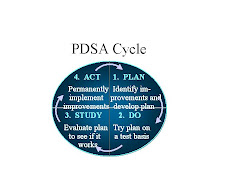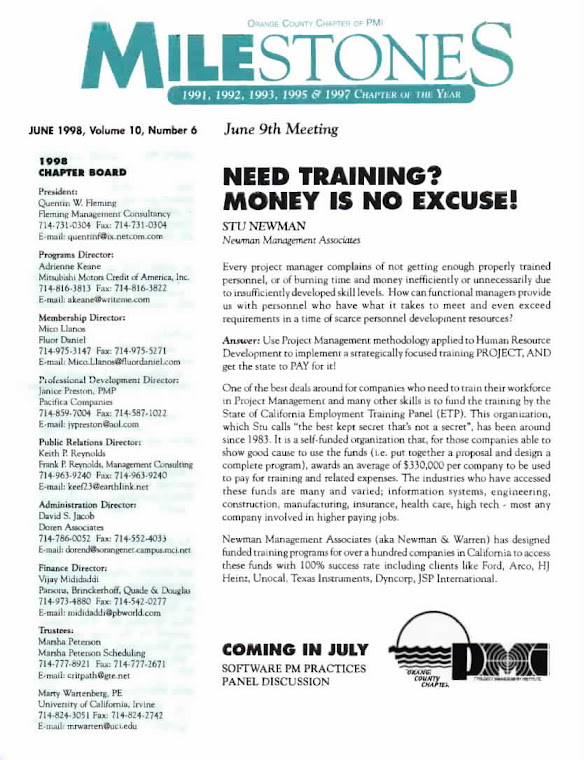Passing Score for PMP Exam Changed
By Brian Summerfield, Web Editor —
The Project Management Institute (PMI) has lowered the minimum score required to pass its well-known Project Management Professional exam. The revised PMP test, which went live on Sept. 30, had an overall percentage passing point set at 141 correctly answered questions, but lowered that to 106 questions after PMP officials determined the difficulty of the exam exceeded the level of skill it was intended to verify. Denny Smith, PMI's manager of certification, emphasized that the adjustment of the passing score is a regular and often necessary process for examinations that have undergone a significant revision. �While we have adjusted the passing score to reflect the increased difficulty of the examination, the pass rate adjustment will not impact the level of preparedness of the professional; rather, it will ensure that they are adequately credentialed to receive the PMP credential,� he said. The PMP exam was revised to increase the number of situational questions against knowledge-recall items, Smith said. Other non-test related changes involved the application process: That now requires candidates provide documentation on their experience with leading and directing project tasks as well as supervisor information, and also entails a more thorough application review on the part of PMI. �The difficulty factor is evidence of the rigor in the new exam and the lower percentage of people passing the new exam�low 70 percent range as compared to 80 percent with the previous exam,� he explained.With regards the exam itself, PMI initially launched a test with a passing score developed by a volunteer group of global PMPs trained in the Modified Angoff Technique, a customary method for setting performance level cut points for large-scale assessments, and one known for its flexibility and adaptability to specific program requirements, Smith said. He added that the organization used established exam development methods in the follow-up changes that pertained solely to the passing score, not any of the questions themselves.
�In the long run, the PMP credential will continue to be strengthened by the caliber of candidates who pass the new examination,� he said. �In sum, the exam is not changing, nor are the questions. The pass score is the component that is being modified and, in the long term, the PMP exam will be stronger as a result, and so will the credentialed professional project mangers in response to the expressed needs of the marketplace. It�s important to note that the change in the exam is reflective of the maturation of the profession. While we remain extremely sensitive to candidates� concerns about any change in the passing score, these considerations must be weighed in the context of PMI�s goal to provide a consistent global standard that ensures the PMP certification is awarded to appropriately credentialed individuals.�
http://www.certmag.com/read.php?in=1574
For more information, see http://www.pmi.org.



